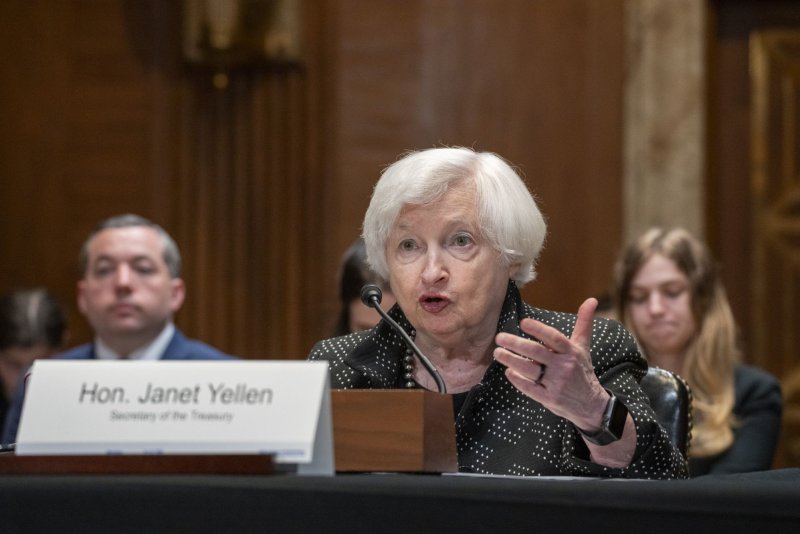Treasury Secretary Janet Yellen speaks during a Senate Appropriations Subcommittee on Financial Services and General Government hearing on Capitol Hill on June 4 and on Friday announced the federal government would reach its debt ceiling on Tuesday. File Photo by Ken Cedeno/UPI |
License PhotoJan. 18 (UPI) — President-elect Donald Trump will take charge of a federal government that will reach its self-imposed debt limit of $36 trillion a day after he is sworn in on Monday.
The Treasury Department on Friday announced the federal government’s debt limit will be reached Tuesday, prompting Treasury Department officials to ask Congress to suspend or raise the debt limit.
Departing Treasury Secretary Janet Yellen urged Congress to “act promptly to protect the full faith and credit of the United States” Friday in a letter to House Speaker Mike Johnson, R-La.
“I will be unable to fully invest the portion of the Civil Service Retirement and Disability Fund not immediately required to pay beneficiaries” and the “Treasury Department will suspend additional investments of amounts credited to, and redeem a portion of the investments held by, the CSRDF,” Yellen said.
The Treasury Department also will suspend investments in the Postal Service Retiree Health Benefits Fund through March 14.
Federal retirees and employees won’t be affected by those actions, Yellen said.
She said the debt limit does not authorize new spending and creates a risk that the federal government “might not be able to finance its existing legal obligations” without suspending or increasing the debt limit.
The federal government’s current fiscal year began on Oct. 1 and runs through September but it only is funded through March 14.
Several Republican lawmakers in the House of Representatives in December unsuccessfully sought to increase the debt limit by $1.5 trillion when enacting the current temporary federal budget that ends March 14.
Several GOP lawmakers also opposed raising the debt limit, although Trump has favored raising or eliminating the debt ceiling.
The current debt ceiling was established in the bipartisan Fiscal Responsibility Act that Congress passed in June 2023 and raised it from the prior $31.4 trillion limit.
